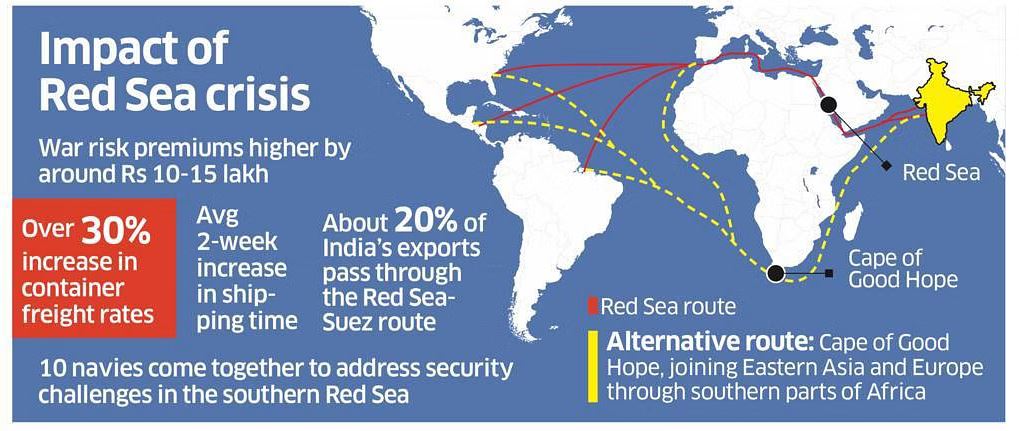The Red Sea crisis has caused concerns about how it affects US shipment companies and consumers. We need to find ways to minimize the impact and ensure smooth operations.
In this article, we will discuss some practical solutions to address this issue.
1. Increase Security Measures
The Red Sea crisis has caused concerns about how it affects US shipment companies and consumers. We need to find ways to minimize the impact and ensure smooth operations. In this article, we will discuss some practical solutions to address this issue.
2. Explore Alternative Trade Routes
To reduce dependance on the Red Sea route and minimize the impact of the crisis, shipment companies should consider diversifying their trade routes. This means finding alternative transportation options and trade corridors. By investing in the development of infrastructure, such as expanding existing ports or establishing new ones, we can create alternative pathways for transporting goods. This will help maintain a reliable supply chain for USA consumers even during times of crisis.
3. Embrace Technology
Leveraging advanced technology is another solution to mitigate the impact of the Red Sea crisis. Shipment companies can adopt state-of-the-art tracking systems, satellite communication, and real-time monitoring tools to improve the security and efficiency of their operations. These technologies provide valuable insights into potential risks and enable proactive measures to address them. By embracing technology, shipment companies can enhance their responsiveness and ensure timely delivery of goods to US consumers.
4. Foster Collaboration and Information Sharing
Collaboration and information sharing among shipment companies, industry associations, and relevant stakeholders are crucial in addressing the impact of the Red Sea crisis. By establishing platforms for sharing best practices, intelligence, and security updates, we can keep everyone informed and prepared. Additionally, working closely with government agencies and international organizations will lead to coordinated efforts in addressing security concerns. By fostering collaboration, we can strengthen our resilience and minimize the impact on USA consumers.
5. Prioritize Insurance and Risk Management
Insurance and risk management strategies play a vital role in mitigating the impact of the Red Sea crisis on shipment companies and consumers. Shipment companies should review their insurance coverage and consider policies that specifically address risks associated with the Red Sea region. Engaging with insurance providers specializing in maritime security can provide tailored solutions to protect against potential losses. Additionally, implementing robust risk management practices, such as contingency planning and diversifying supply chains, can help mitigate disruptions and ensure business continuity.
Conclusion
The Red sea crisis poses challenges for USA shipment companies and consumers. However, by implementing practical solutions, we can minimize the impact and maintain a smooth flow of goods. Enhancing security measures, exploring alternative trade routes, embracing technology, fostering collaboration and information sharing, and prioritizing insurance and risk management are key steps in addressing this crisis. By proactively tackling these challenges, shipment companies can continue to serve USA consumers efficiently and maintain a resilient supply chain.
FAQ
Q1: How can enhanced security measures reduce the impact of the Red Sea crisis?
A1: Enhanced security measures, such as increased patrols and better surveillance, can deter and respond to security threats, ensuring the safety of cargo and minimizing disruptions in the Red Sea region.
Q2: How can exploring alternative trade routes help reduce the impact of the crisis?
A2: Exploring alternative trade routes allows shipment companies to reduce their reliance on the Red Sea route, ensuring a reliable supply chain and minimizing disruptions for USA consumers.
Q3: How does technology help in mitigating the impact of the Red Sea crisis?
A3: Technology, such as tracking systems and real-time monitoring tools, improves the security and efficiency of operations, enabling proactive measures to address potential risks.
Q4: Why are collaboration and information sharing important in addressing the impact of the Red Sea crisis?
A4: Collaboration and information sharing among shipment companies and stakeholders facilitate the exchange of best practices, intelligence, and security updates, leading to coordinated efforts and effective solutions.

